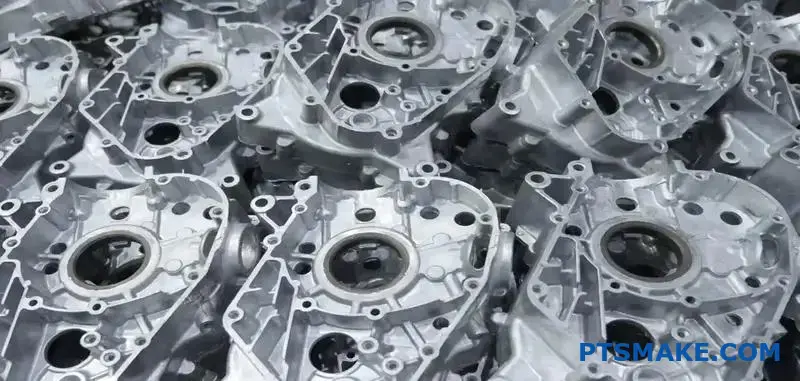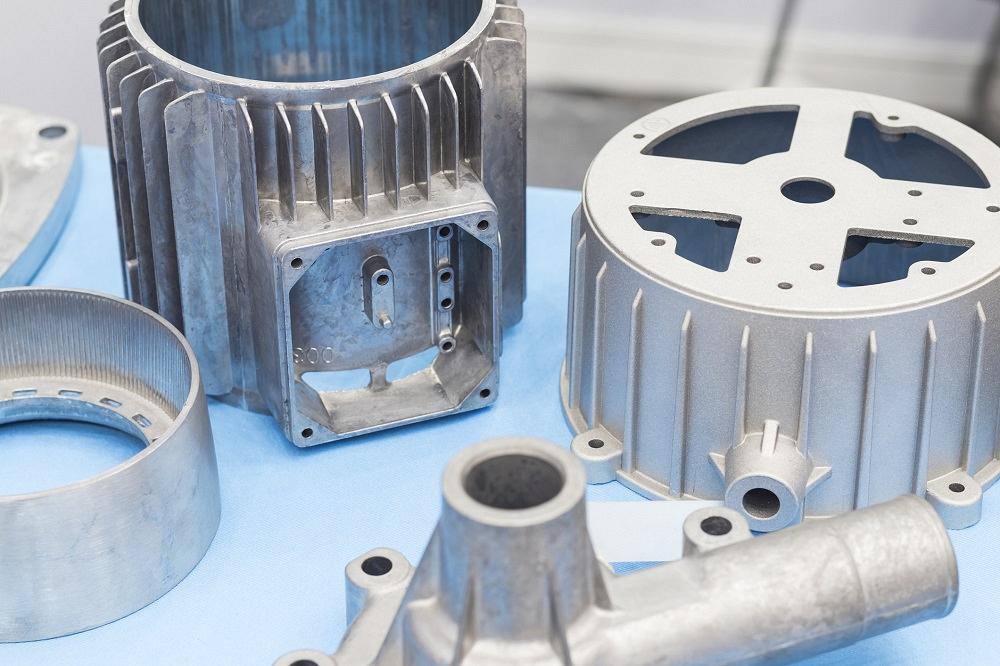The Role of Aluminum Foundries ahead of time Lightweight Production Solutions
Light weight aluminum factories greatly contribute to the development of light-weight manufacturing remedies. Their ingenious casting innovations produce high-strength, light-weight components vital for markets like vehicle and aerospace. This advancement not just enhances item efficiency but likewise advertises sustainability with using recycled products. As these factories adjust to arising technologies and methods, they lead the way for future growths in manufacturing performance and environmental responsibility. What exists in advance in this transformative journey?
The Advantages of Lightweight Materials in Manufacturing
As sectors significantly seek efficiency and sustainability, the adoption of lightweight materials in production has become a necessary method - aluminum casting. These materials, specifically aluminum and composites, provide various advantages that enhance manufacturing procedures and product performance. Largely, their reduced weight adds to lower power consumption during transportation and procedure, leading to significant expense savings
Additionally, lightweight products help with the design of more complicated geometries, allowing for higher technology in item development. This flexibility frequently results in improved functionality and performance, satisfying the developing demands of modern-day consumers.
Furthermore, the use of light-weight materials can boost the longevity of products due to their resistance to deterioration and fatigue. This resilience not only minimizes upkeep prices but likewise sustains sustainability efforts, as longer-lasting products contribute to less waste. To sum up, the advantages of light-weight materials are crucial in driving performance, advancement, and environmental obligation in production.
Advancements in Aluminum Casting Technologies
Recent advancements in light weight aluminum spreading innovations are changing the manufacturing landscape, specifically in the production of lightweight elements. Innovations such as high-pressure die casting and vacuum pass away casting have substantially enhanced the accuracy and surface coating of aluminum components - aluminum casting. These approaches enable the development of complicated geometries while lessening product waste and enhancing mechanical properties

Furthermore, the implementation of real-time monitoring systems ensures top quality control throughout the spreading process, resulting in more regular item end results. Jointly, these technologies not just improve the performance of light weight aluminum parts however likewise support the sector's change in the direction of more lasting manufacturing practices.
Applications of Aluminum Elements in Numerous Industries
While light weight aluminum components have actually long been used in numerous industries, their convenience and light-weight properties remain to drive cutting-edge applications across fields such as vehicle, aerospace, and construction. In the auto market, light weight aluminum is progressively used for engine blocks, wheels, and body panels, improving gas effectiveness and performance. Aerospace makers leverage light weight aluminum for airplane frameworks and parts, exploiting on its strength-to-weight proportion to improve gas economy and payload ability.
In the construction industry, aluminum is preferred for window structures, roof, and structural components, giving toughness and resistance to deterioration while minimizing total building weight. In addition, the electrical and electronic devices sectors gain from light weight aluminum's conductivity and lightweight nature, using it in electrical wiring, units, and warmth sinks. These varied applications highlight the critical duty of aluminum elements, which not just meet industry demands yet additionally add to developments in product layout and functionality across numerous fields.
Sustainability and Energy Efficiency in Aluminum Foundries
The light weight aluminum factory industry plays a critical duty in advertising sustainability and energy effectiveness, specifically as demand for lightweight parts remains to grow throughout numerous industries. Foundries are significantly taking on eco-friendly practices, such as using recycled light weight aluminum, which substantially lowers power consumption and greenhouse gas emissions compared to main aluminum production.
In addition, innovations in casting modern technologies boost power efficiency by enhancing the melting processes and decreasing waste. Methods like die spreading and investment casting permit exact material usage, minimizing excess and scrap.
Additionally, several shops are spending in renewable power resources to power procedures, even more lowering their carbon footprint. Implementing power monitoring systems allows factories to monitor and improve energy use, guaranteeing they operate at peak efficiency.

Future Trends in Lightweight Manufacturing Solutions
Just how will arising technologies form the future of light-weight production options? Advancements such as innovative products, automation, and additive production are established to redefine production procedures. The integration of smart manufacturing modern technologies, consisting of the Net of Points (IoT) and expert system (AI), will certainly make it possible for real-time tracking and optimization, enhancing effectiveness and minimizing waste.

As sustainability proceeds to be discover this info here a paramount concern, light-weight options will significantly concentrate on recycling and recycling materials, straightening with round economy principles. This advancement in light-weight production will not just improve item performance yet likewise contribute to ecological objectives, making sure that the market stays competitive in a quickly transforming market landscape.
Regularly Asked Questions
Just How Do Aluminum Foundries Guarantee Top Quality Control in Production?
Light weight aluminum shops assure quality control in manufacturing through extensive screening, standard treatments, and constant surveillance - Aluminum Foundry. They carry out proficient employees and advanced modern technologies to preserve uniformity, decrease anchor problems, and meet market standards throughout the manufacturing process
What Are the Key Challenges Dealt With by Light Weight Aluminum Foundries?
Light weight aluminum factories encounter difficulties such as fluctuating raw product prices, maintaining production performance, guaranteeing regular quality, adapting to technological developments, and meeting environmental policies, every one of which effect their overall functional effectiveness and competition on the market.
Just How Does Light Weight Aluminum Recycling Effect Shop Workflow?
Aluminum reusing substantially boosts factory operations by minimizing resources prices, minimizing energy usage, and reducing environmental impact. This lasting practice makes it possible for shops to boost efficiency while fulfilling enhancing demand for light-weight, high-performance aluminum products.
What Abilities Are Required for Workers in Aluminum Foundries?
Workers in aluminum foundries require skills in metallurgy, machining, top quality control, and safety techniques. Efficiency in running equipment, understanding alloy residential or commercial properties, and problem-solving are also necessary for efficient production and preserving high safety and security criteria.
How Do Light Weight Aluminum Foundries Handle Waste Management?
Light weight aluminum factories manage waste via reusing scrap steel, making use of effective waste segregation strategies, and sticking to environmental regulations. They implement sustainable techniques to lessen garbage dump payments, guaranteeing that unsafe products are gotten rid of responsibly.
Aluminum foundries substantially add to the development of light-weight production remedies. Current look these up improvements in aluminum spreading modern technologies are transforming the production landscape, especially in the production of lightweight elements. While light weight aluminum elements have actually long been made use of in different markets, their convenience and lightweight residential or commercial properties continue to drive innovative applications throughout industries such as auto, aerospace, and construction. Additionally, the electrical and electronics sectors profit from aluminum's conductivity and light-weight nature, utilizing it in wiring, units, and warm sinks. The light weight aluminum foundry industry plays an essential role in promoting sustainability and energy efficiency, specifically as demand for light-weight elements proceeds to grow throughout numerous sectors.